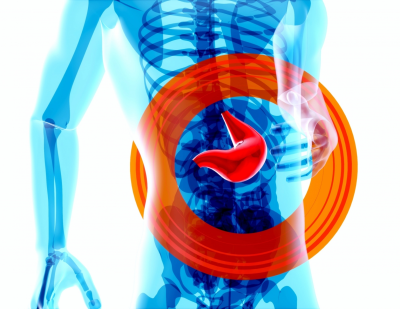
Potential new treatment discovered for liver disease
text_fieldsNew York: An investigation into a potential new therapy for patients with fibrosis linked to nonalcoholic steatohepatitis (NASH) has been led by US researchers.
The findings, which were published in the online version of The New England Journal of Medicine, explain a medication called Pegozafermin that acts as a hormone mimic in the body and reduces liver inflammation and liver fibrosis in people with NASH.
"Identifying an effective drug for NASH is extremely promising for patients as currently there are no FDA-approved therapies for this condition," said Rohit Loomba, the study’s first author and chief of the Division of Gastroenterology and Hepatology at the University of California-San Diego School of Medicine.
"NASH can adversely impact the quality of life in patients and can progress to cirrhosis. Its complications can lead to death or liver transplantation.
"Our findings will further the science of this disease and provide a potential new treatment option to those affected by NASH-related fibrosis," Loomba said.
The researchers said Pegozafermin mimicked fibroblast growth factor 21 (FGF21) -- a liver-secreted peptide hormone that is naturally produced in the body.
FGF21 controls energy use in the body and lipid metabolism in the liver. It has also been shown in previous studies to lower blood glucose and insulin levels, reducing body weight and liver fat.
"The study’s results show that the new potential treatment not only improves fibrosis but also improves inflammation and liver injury along with significant improvements across multiple non-invasive biomarkers of NASH activity and scarring," Loomba said.
The 24-week, randomised clinical trial involved 222 participants with NASH assigned to either receive the drug or a placebo.
Of the patients who received the drug at a higher dose, approximately 27 per cent showed an improvement in liver fibrosis, relative to 7 per cent of the patients who received the placebo. The most frequently reported side effects from the drug were gastrointestinal in nature, including nausea.
Currently, there are no medications approved by the US Food and Drug Administration available for the treatment of NASH, which is a type of nonalcoholic fatty liver disease (NAFLD).
Loomba adds that the next steps for this research will be a larger, multi-centre, international trial with a more diverse patient population and longer treatment period to better assess the safety of the drug.
"If successfully shown to be both safe and effective in a larger Phase 3 trial, this drug could be used to treat millions of patients with NASH," Loomba noted.
With inputs from IANS






















